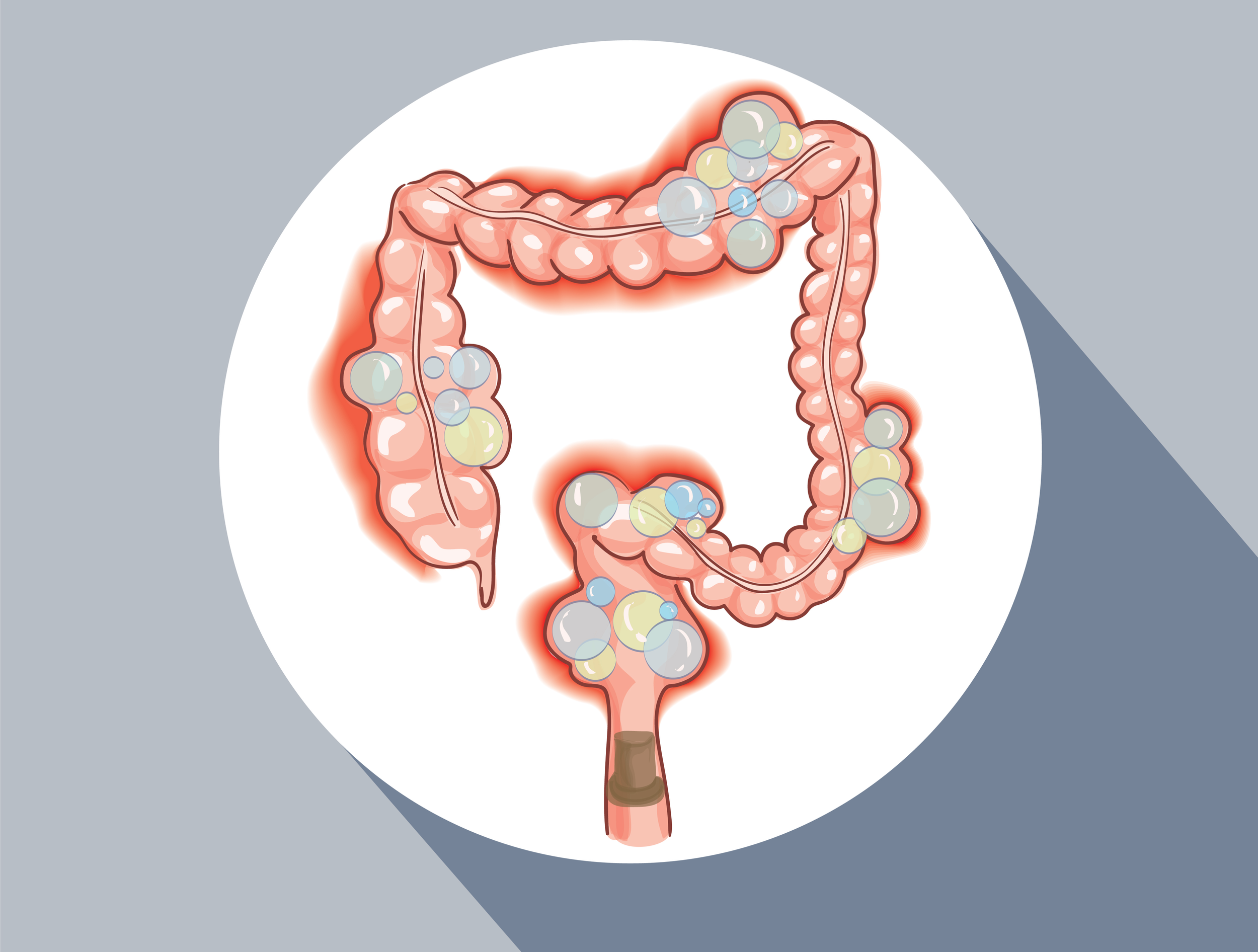When breast is not best: colic and a screaming baby
Despite popular belief – breastmilk is not always perfect. Often it contains contaminants from the mother’s diet which can cause colic in the baby. Food toxins from the mother’s body set up excess gases in the infant’s intestine – leading to bloating and excruciating pain. So the child screams in distress for hours. But there is a simple solution.
New mothers are urged to breastfeed exclusively - and that ‘breastmilk is always best’ for baby. Even when the infant screams for hours every day – there is no diversion from the mantra. So desperate and sleepless parents search the internet for answers.
Unfortunately much of it is regurgitated misinformation. And sadly the listings which rank the highest are the most misleading. Some even claim colic is not painful for the baby – untrue.
But here at the Food Intolerance Institute we have a different take - one that actually explains colic. We also believe, when a child is screaming - something is wrong.
If the mother is unaware of her own food toxin sensitivity, say to gluten or casein – this could be the problem. First of all, a gluten-sensitive mother (or father) is very likely to have gluten-sensitive children.
Under-diagnosed and under-identified
But the little-known truth is, food sensitivity is under-identified and under-diagnosed. So millions of gluten-sensitive people ascribe their nagging symptoms to other causes – and use over-the-counter medications constantly to quell them.
So a screaming newborn is their first touchpoint with the reality of food intolerance.
Scientists confirm breakdown peptides from casein and gluten are implicated in the cellular level damage that leads to celiac disease, Crohn’s[1], intestinal cancers, multiple sclerosis, Tourette’s syndrome[2], schizophrenia[3] and others.
When we eat indiscriminately, lectins (indigestible proteins) from wheat, milk, cheese, soy, corn, chili, yoghurt and other things roam freely in our bodies.
For a new mother they also arrive in the breastmilk. Yes, they cause slow-burn damage to the mother (even if she senses no symptoms). But they can cause excruciating pain to her breastfeeding baby - known as colic.
What happens in the infant’s body?
The toxins promote abnormal chemical reactions in the gut – producing unusual and excess gases which balloon into the gut, stretching it to what feels like breaking point. Plus, the intestine itself becomes inflamed.
For a baby the consequence is unbearable pain. She cries and wails uncontrollably. And she keeps screaming until the ‘wind’ eventually passes – usually a few hours. The next day it happens all over again.
Our recommendation
We recommend the mother goes gluten-free and dairy-free for a week or two - and see if this improves the baby’s condition.
You should notice results within 48 hours as the toxins work their way out of the breast milk - and through your baby’s digestive system. Colic is distressing for babies and parents - and in most cases can be easily relieved by avoiding the food toxins which cause it. There are dozens of great-tasting ‘free-from’ products now available … but for extra guidance our Recipes are all low toxin.
Medicine has no explanations for colic – and very few options for parents. Many doctors are dismissive of the condition saying the child will ‘grow out of it’ . . . which of course they do, in few years – and after a baby lifetime of trauma for the whole family.
But what parent would allow an infant to wail on in searing pain - once they know the cause? It is our position that there is always a reason for a child’s distress.
In general if the mother’s milk contains toxins and the baby is sensitive – there will be bad outcomes for the both infant and mother.
In fact sometimes it is a ‘colicky baby’ that first flags the possibility of food sensitivity in the unsuspecting mother. But as soon as she starts avoiding toxins, her breast milk will become safe for the baby … not to mention the health benefits for herself!
Nothing can prepare new parents for colic. A newborn infant wailing for hours is a daily nightmare: mothers worry about serious illness for the baby, they begin to doubt their judgement, believing they have done something wrong . . . and on top of all that daytime stress – nobody is getting any sleep.
Most of us can manage a few days of chaos. But colic goes on for months. Nothing but nothing can soothe a colicky baby! Making matters worse – a new mother struggling to think clearly in her emotionally fraught and sleep-deprived state may make poor decisions.
Without a true understanding of what is causing it - the baby’s condition endures. And medicine can do little to help. Knock-on effects can include heightened risk of infection: coughs, runny nose, sinus issues, ear infections and bronchitis – and/or delayed learning and development.
The adverse effects of food toxins are still not widely appreciated – even by doctors and those who give maternal health advice. While the baby’s digestive system is certainly designed to process breastmilk … it cannot process any semi-digested toxin particles circulating in the mother’s body.
If you know somebody who might benefit from reading this article – please share on Social media using the icon at top left.
[1] Gkikas et al. Dietary triggers of gut inflammation following exclusive enteral nutrition in children with Crohn's disease: a pilot study. BMC Gastroenterol 2021 Dec 3;21(1):454.[2] Rodrigo et al. Efficacy of a Gluten-Free Diet in the Gilles de la Tourette Syndrome: A Pilot Study. Nutrients. 2018 May 7;10(5):573.[3] Severance EG et al. Gastrointestinal inflammation and associated immune activation in schizophrenia. Schizophr Res. 2012 Jun;138(1):48-53 


